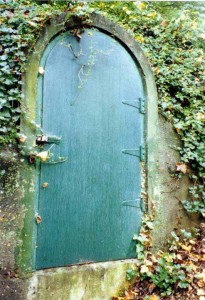I think this round started in the spring of 2010 with my wanting to create a website combining my recipes and my stories and essays. So, I re-read Marjorie Kinnan Rawlings’ Cross Creek Cookery. She bought a citrus grove in rural Florida, moved there, and wrote. She loved to cook as much as she loved to write. Me, too. Every time I envision Marjorie Kinnan Rawlings, I see her as Mary Steenburgen, who played her in the movie, Cross Creek. I saw the movie and I read that book, too. I thought Rawlings’ Cross Creek life, which I read about in the ‘90s when I lived in Florida, was ideal – writing and cooking and camaraderie – not, however, the raising and killing of pigs and other animals.
Then there was something about Cinema Paradiso – I always liked that movie; it had some kind of an impact on me, I’ve never understood what. I like the music, too; I bought the soundtrack. And then there was Murder on the Orient Express – the David Suchet as Hercule Poirot version in the PBS Masterpiece Mystery movie, and the book – I read Agatha Christie’s story. I have been writing a novel for years, three, in fact, and I was looking to the best authors for plot and character development: What are the red herrings? What creates the twists and turns and makes you want to keep reading or watching? Why do I like this character so much, why do I relate, what makes him or her so real? And the settings, the sensuality – the pictures the author portrays, so that while you are reading, you have a movie running through your mind and then you forget you are reading; you believe you are there.
This latter analysis comes from Orhan Pamuk, the Turkish, 2006 Nobel prizing winning author, in his new book, his 2009 Charles Eliot Norton Lectures at Harvard, titled The Naïve and the Sentimental Novelist. I am reading this book now.
Around this time of reading Cross Creek Cookery, I was thinking of Like Water for Chocolate, which I had read in the late 1990s and had watched the movie, and I read Orhan Pamuk’s Istanbul: Memories and the City. I had just read two of his novels, Snow and My Name is Red. But Istanbul impacted me profoundly. The feeling adheres to me to this day – the huzun (melancholy), yes, but more, a whole sense of being. Most likely Orhan Pamuk’s masterful writing drew from my own deep well my feelings and my personal memories of growing up and my family. I could relate to his childhood and his feelings, to the place where he grew up: “Hey, that’s me, too.” Certainly I did not grow up in Istanbul, rather in Philadelphia, another big city, but in ways our families were similar – his were civil engineers, mine bankers, but generational, close and secure until our parents’ divorce. We each grew up with one sibling, a brother. We rode ferryboats, we stayed with our families at summer beach houses – well, a lot of similar memories and memorabilia.
I just received a treasure of old family photos from my aunt, who was married to my father’s brother and who is 97 and just entered a nursing facility. She can’t keep all the family memorabilia there – her room is like a college dorm room and she has a roommate; there’s no space, and the nursing center will just throw them away: these are the nostalgic items you see at auction, insensitively discarded. Among these are my grandmother’s photos I had never seen of young girls in Gibson hairdos and posing on the beach wearing striped bathing costumes. I spent two afternoons going through these photos, looking at pictures of my family members when they were babies, then when they were young and vibrant and got married and had children; then their children had children and they served in World War II and I came along and then I had a child and grandchildren. Here were my family, all around me, once again. They had come back, if only for a day or two. And here I am, nearly 70. They were born, they lived their lives, engaged in meaningful activities, they laughed, they taught me and took me places, and then they died. That’s it.
Orhan Pamuk is completing his Museum of Innocence in Istanbul, a physical representation, essentially, of his most recent novel, The Museum of Innocence. In the physical version, Pamuk is collecting memories of the city, Istanbul, and of Turkey and his lifetime experience there.
Well, here is my trolley stop. I must get off. Thus far I have described the platform onto which I unwittingly stepped to arrive in my protracted “Dark Night of the Soul.” I will write about my journey through this land in my next installment.
–Samantha






Thank you, nice post! This was the thing I needed.
Howdy. I found your weblog the usage of msn. That’s a remarkably neatly written article. I am likely to bookmark it and return to read extra of one’s useful information. Thanks for the post. I’ll certainly comeback.
Your weblog is fantastic. Thank you so much greatly for delivering a lot of very useful knowledge.
I am looking over some of your content we can claim nice stuff. I’ll definitely bookmark your internet-site.
Thanks for the awesome article – I love reading it!
Thanks for another awesome post. Keep up the good work.
These books and these authors are awesome. Thank you.